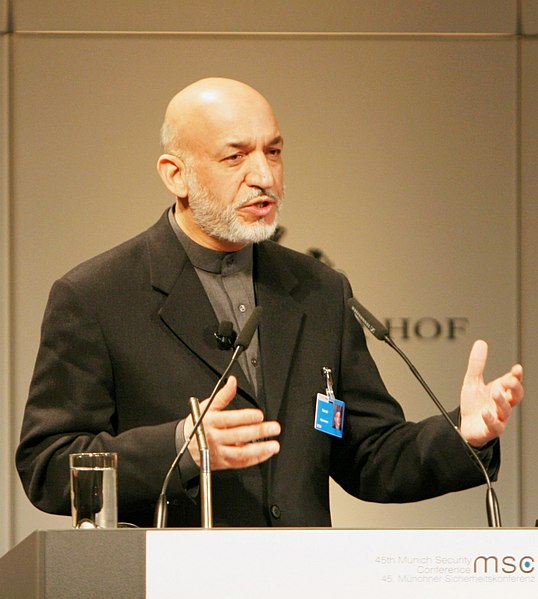Former president of Peru, Alberto Fujimori, confessed to giving over $15 million to his one-time spy chief, Vladimiro Montesinos, as a gesture of appreciation for his work during the last days of his term. He claims that because the money was promptly returned in 2000, no crime has actually been committed. The prosecutor of the case, Avelino Guillen, has charged the ex-president with embezzlement from government coffers and suggested to the judge a sentence of eight years in prison with a fine of 2 million soles (roughly $650,600). Fujimori’s attorney, Cesar Nakazaki, claims that there is enough evidence to support his client’s claim that the money was returned. A second trial hearing will take place on Wednesday, and a final ruling is expected by Friday.
 In a Bastille Day appearance on national television on Tuesday, French President Nikolas Sarkozy reaffirmed his country’s committment to NATO operations in Afghanistan and pledged to invest 377 billion euros for new military equipment over the next 12 years. As he celebrated the anniversary of the start of the French Revolution, Sarkozy said, “The challenge for tomorrow is to have a France, with its 65 million people, recognized as a great power: That our voice be heard.” His announcement comes amidst bureaucratic restructuring in the French military, which has recently closed several bases in France and Africa in order to give greater focus to the Middle East. Starting Wednesday, the French Senate is also expected to begin talks on military reforms that may cut 80 units and eliminate 54,000 defense jobs.
In a Bastille Day appearance on national television on Tuesday, French President Nikolas Sarkozy reaffirmed his country’s committment to NATO operations in Afghanistan and pledged to invest 377 billion euros for new military equipment over the next 12 years. As he celebrated the anniversary of the start of the French Revolution, Sarkozy said, “The challenge for tomorrow is to have a France, with its 65 million people, recognized as a great power: That our voice be heard.” His announcement comes amidst bureaucratic restructuring in the French military, which has recently closed several bases in France and Africa in order to give greater focus to the Middle East. Starting Wednesday, the French Senate is also expected to begin talks on military reforms that may cut 80 units and eliminate 54,000 defense jobs.Former Liberian president Charles Taylor underwent a second day of interrogation before the Special Court for Sierra Leone on Wednesday. His testimony was punctuated with allegations that the case against him is based on “disinformation, misinformation, lies, [and] rumors.” Taylor faces 11 charges related to his support of rebel forces in Sierra Leone’s 1991-2002 civil war, including murder, rape, torture, and the use of child soldiers. He has plead “not guilty” on all counts. Over the first two days (in what is expected to be at least two weeks of testimony), Taylor has focused on rebranding himself as a pro-democracy maverick rather than a corrupt and vicious warlord. But David Crane, the former chief prosecutor of the Special Court on Sierra Leone who signed the 2003 indictment of Taylor, called the categorical non-guilty plea a “risky” strategy. Crane noted that the prosecution has documented payoffs to Taylor by rebel forces in Sierra Leone and has directly linked them to atrocities in that country.
55 heads of state met today in the resort town of Sharm el-Sheikh in Egypt for the fifteenth annual Non-Aligned Movement (NAM) summit, seeking (once again) to establish a “new world order.” Several analysts have questioned the relevance of such a movement in a post-Soviet world (the movement was established during the Cold War when nations sought independence from the Soviet and U.S. blocs), but Zimbabwean Foreign Minister Simbarashe Mumbengegqi stressed that it was important for the group to discuss international development in the midst of the global economic crisis to ensure that industrialized nations are not given “free rein to manage such a crisis.” Egyptian Foreign Minister Ahmed Aboul Gheit added that “a new international order” needs to be established in which “nations are not judged by their size or military and economic capabilities.” The talks, however, are likely to be overshadowed by peace talks between India and Pakistan, both NAM members. Indian and Pakistani officials hope to normalize relations that have soured since last year’s terrorist attack on Mumbai, which India alleges was carried out by a Pakistani militant group. The NAM consists of 118 nations, mainly developing countries in Africa, Asia, and Latin America, which make up 56 percent of the world’s population.
Read more about emerging nations and the Non-Aligned Movement on page 57 of the summer ’09 issue of the World Policy Journal in Sung Won Kim, David P. Fidler, and Sumit Ganguly’s article, Eastphalia Rising? Asian Influence and the Fate of Human Security.
 Afghan President Hamid Karzai will sign a bill promoting women’s rights and punishing impunity towards women this week, according to U.S. officials. Men who exclude women from obtaining healthcare, working, or getting an education will face six months in prison. U.S. House Representative Carolyn Maloney (D-NY) applauded the bill, noting that women’s rights had been neglected during armed conflict in the nation and that Afghan women are “dying needlessly” because of chronic malnutrition. Afghanistan has the world’s second highest maternal mortality rate (after Sierra Leone), due to inadequate medical facilities and because Afghan women “have too many children too quickly at too young an age.” News of the bill comes one week after the United Nations High Commissioner for Human Rights released a report criticizing Karzai for failing to end violence against women and for “sustaining a culture of impunity” that leaves such violence unpunished.
Afghan President Hamid Karzai will sign a bill promoting women’s rights and punishing impunity towards women this week, according to U.S. officials. Men who exclude women from obtaining healthcare, working, or getting an education will face six months in prison. U.S. House Representative Carolyn Maloney (D-NY) applauded the bill, noting that women’s rights had been neglected during armed conflict in the nation and that Afghan women are “dying needlessly” because of chronic malnutrition. Afghanistan has the world’s second highest maternal mortality rate (after Sierra Leone), due to inadequate medical facilities and because Afghan women “have too many children too quickly at too young an age.” News of the bill comes one week after the United Nations High Commissioner for Human Rights released a report criticizing Karzai for failing to end violence against women and for “sustaining a culture of impunity” that leaves such violence unpunished.
Read more about Afghan reconstruction and reform in Michael Daxner’s article, Afghanistan: Graveyard of Good Intent, in the summer ‘09 issue of World Policy Journal.